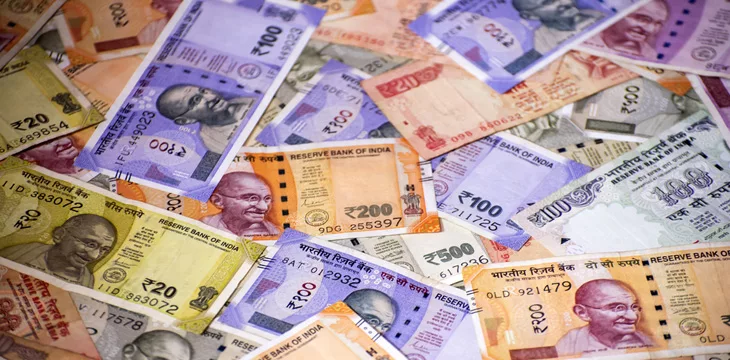|
Getting your Trinity Audio player ready...
|
India’s financial infusion in the IndiaAI mission will double from the current Rs 10,300 crore ($1.24 billion) due to “additions of certain components.” In March, India had approved the outlay for the next five years to boost the country’s artificial intelligence (AI) ecosystem, innovation, and entrepreneurship.
“The mission approved by the Cabinet had an outlay of Rs 10,000 crore but the effective value will go up to Rs 20,000 crore on addition of some other things,” Rajeev Chandrasekhar, Minister of State for Electronics and IT, told reporters, without disclosing further details.
The IndiaAI Mission—with a key focus on developing high-end compute infrastructure in the country—will be implemented through a public-private partnership model. It is also expected to facilitate access to funds for AI startups. The initiative is expected to boost India’s global leadership in AI and ensure ethical and responsible AI deployment.
India will procure over 10,000 graphics processing units (GPUs) to address India’s computing capacity needs in order to develop a high-end AI ecosystem. Earlier this month, S Krishnan, secretary at the Ministry of Electronics and IT (MeitY), said that the government plans to finance up to 50% of the cost of creating AI computing infrastructure in the country.
India will also likely be a $1 trillion digital economy by 2027-28.
“Digital economy is growing at the rate of 2.8% because of the vision of Prime Minister Narendra Modi. His vision laid down in 2015 has played out well. We are already the fastest growing digital economy of the world. We are aiming to be $1 trillion digital economy by 2027-28,” Chandrasekhar said.
According to a joint report by Google (NASDAQ: GOOGL), Temasek, and Bain & Company, India’s internet economy is likely to grow six times to reach $1 trillion by 2030, from close to $175 billion in 2023. The world’s fastest-growing major economy is expected to use growth in digital payments and emerging technologies like blockchain and AI to boost economic growth while luring investors and corporates to be part of India’s growth story.
India, which is currently holding the largest election in human history, with about 970 million registered voters, is using AI to target voters through dozens of language translations. This is the first time almost all political parties and candidates use AI extensively to reach voters, and are estimated to spend more than $50 million on AI-generated election campaign materials.
“AI is very important, and sometimes I joke that in India a child’s first words are “Aai”—which means “mother” in many Indian states – as well as “AI”—children have become so advanced,” Prime Minister Narendra Modi said in April.
Modi—who is expected to win the 2024 elections extending his 10-year rule for another five years—is leveraging AI tools like ‘Bhashini’ for language translations during campaigns. Modi has embraced AI innovations and used voice cloning to replicate his speeches across eight languages, including Kannada, Tamil, Telugu, Malayalam, Bengali, Punjabi, Marathi, and Odia.
A Statista report expects the Indian AI market size to reach $6.26 billion in 2024 and witness an annual growth rate (CAGR 2024-2030) of 28.63%, resulting in a market volume of $28.36 billion by 2030.
According to a new Ernst & Young report, titled ‘Realising AI for All in India,’ a few key policy considerations that could expedite AI development in the country include revitalizing telecom investments, catalyzing an open data ecosystem, fostering research initiatives, implementing ethical AI practices, and reforming education to meet the demands of the AI era.
In order for artificial intelligence (AI) to work right within the law and thrive in the face of growing challenges, it needs to integrate an enterprise blockchain system that ensures data input quality and ownership—allowing it to keep data safe while also guaranteeing the immutability of data. Check out CoinGeek’s coverage on this emerging tech to learn more why Enterprise blockchain will be the backbone of AI.
Watch: India is going to be the frontrunner in digitalization

 03-02-2026
03-02-2026 




